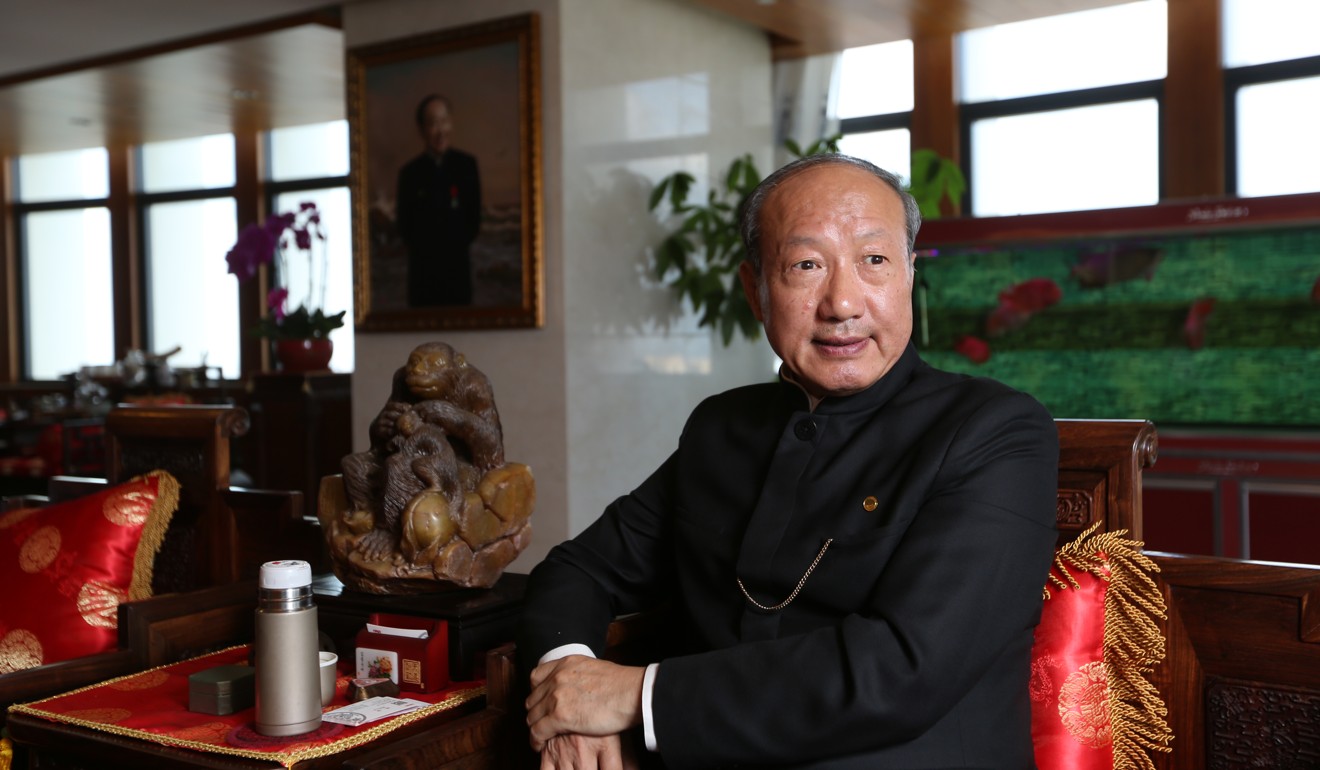
China’s HNA says it will pull out of deals on Beijing’s investment blacklist
Company’s chief defends overseas investments and says it will ‘listen to orders’
China’s HNA Group, a conglomerate that has drawn attention for its overseas buying spree and murky ownership structure, says it will withdraw from any deals on the government’s blacklist.
Adam Tan Xiangdong, the group’s chief executive, told Caijing’s annual financial conference in Beijing on Tuesday that the company would “listen to orders” and “not invest a cent in areas forbidden by the government”.
“For projects we’ve already invested in – we weren’t stopped at the time of investment but now that the government forbids such investments, we will pull out,” Tan said. “For property projects, we will withdraw and hand [the projects] to funds or Reits. I will sell all [overseas] buildings that I have purchased.”
A Reit, or real estate investment trust, is a vehicle for investment in property that can take over liability from a developer.
Tan’s comments marked a sharp difference from the group’s strategy a year ago when it paid HK$27.2 billion for four pieces of land at the former Kai Tak airport site over four months, breaking one price record after another.
In an interview with the South China Morning Post in June, the group’s founder and chairman Chen Feng said it aimed to build and sell flats at cost price for its staff at the former airport site. Chen said at the time that HNA had to pay “above market prices” to get in on Hong Kong’s property boom.
On top of the Kai Tak deal, HNA dazzled the market with a slew of high-profile deals – including investments in Deutsche Bank, Swissport, Carlson Hotels, Hilton Worldwide, Ingram Micro and Singapore logistics firm CWT – as Chen worked towards his goal of making the group one of the world’s largest 100 companies in terms of revenues.

But its overseas expansion ground to a halt in the summer of 2017 when Beijing clamped down on Chinese tycoons investing abroad. In an internal notice in June, the banking regulator ordered lenders to check the loans of big spenders, singling out Wanda, Fosun, Anbang and HNA for special scrutiny.
In September, Bloomberg reported that at least four of eight banks known to have provided a combined US$1.5 billion worth of short-term financing for HNA’s land purchases decided not to renew that credit and did not intend to extend fresh loans to fund construction costs. Liu Junchun, an executive with HNA’s private overseas investment unit, told the Post at the time that it had “sufficient capital” to finance its projects.
Doubts over HNA’s ownership have added to the group’s troubles. The Swiss Takeover Board said last week that HNA had given “untrue” details during its acquisition of Gategroup in 2016.
On Tuesday, Tan defended HNA’s overseas investments, saying the group “earned money in almost all deals” – including more than US$2 billion in eight months on its 25 per cent stake in Hilton Worldwide. When questioned as to whether it would pull out of that deal since Beijing had clearly defined overseas investments in hotels, property and soccer clubs as “irrational”, Tan said: “Hilton is not a hotel, it is an investment company.”
Tan added that HNA had never violated any laws in previous deals.
The group had instead received an annual bonus of 20 million yuan (HK$23.54 million) from the National Development and Reform Commission (NDRC) and the commerce ministry for toeing the government line, Tan said, without elaborating.
“We’ve made many outbound investments, but each of them was approved by the NDRC … and all are compliant with the laws and regulations,” Tan said.
But HNA is under financial pressure after nearly a decade of spending. A month ago, the group sold a one-year bond at a coupon of 9 per cent, showing the company’s eagerness to raise fresh funds to sustain its debt-ridden balance sheet.
China’s outbound investment jumped to a record high of US$170 billion last year. But amid a government crackdown on “irrational investment” that figure fell 40.9 per cent year on year to US$86.3 billion in the first 10 months of this year.

